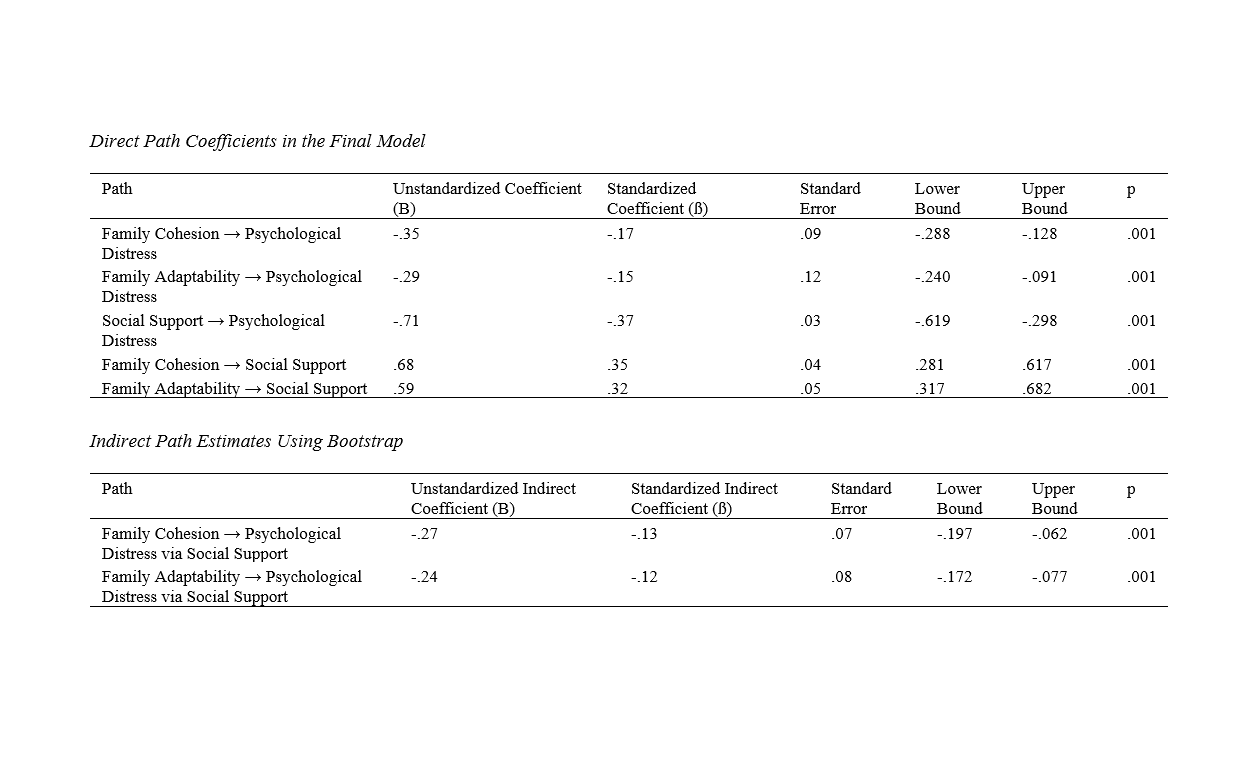Modeling Psychological Distress of Mothers of Children with Autism Based on Family Cohesion and Adaptation with the Mediation of Perceived Social Support
Keywords:
psychological distress, family cohesion and adaptation, Perceived Social SupportAbstract
Objective: The present study aimed to model the psychological distress of mothers with children diagnosed with Autism Spectrum Disorder (ASD) based on family cohesion and adaptation, with the mediation of perceived social support.
Methods and Materials: This research, in terms of its goal, is applied, and in terms of data collection, is quantitative and correlational, employing structural equation modeling. The statistical population consisted of all mothers with children diagnosed with ASD in Tehran in 2020, from which 354 participants were selected using a convenience sampling method. To collect data, the following questionnaires were used: Kessler Psychological Distress Scale (Kessler et al., 2002), Family Adaptability and Cohesion Scale (Olson & Gorall, 2003), and the Multidimensional Scale of Perceived Social Support (Zimet et al., 1988).
Results: The results of structural equation modeling indicated that the indirect pathways from family cohesion (β = -0.13, p < 0.01) and family adaptability (β = -0.12, p < 0.01) to the psychological distress of mothers of children with ASD, through perceived social support, were negative and significant.
Conclusion: Perceived social support mediates the relationship between family cohesion and family adaptability with the psychological distress of mothers of children with ASD.
Downloads

Downloads
Additional Files
Published
Issue
Section
License
Copyright (c) 2024 Sepideh Shishehfar (Author); Leila Kashani Vahid (Corresponding Author); Samira Vakili, Mohammad Parsa Azizi (Author)

This work is licensed under a Creative Commons Attribution-NonCommercial 4.0 International License.




















